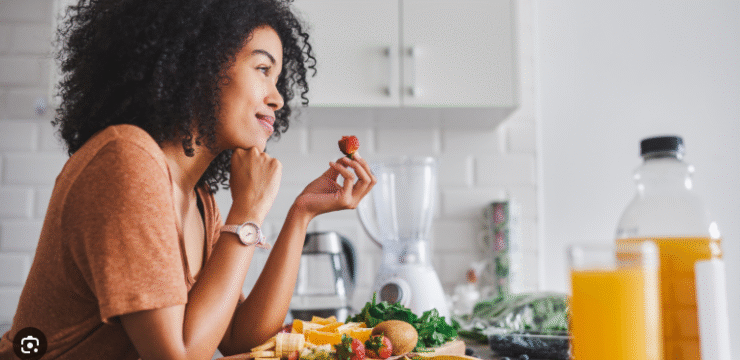1.
Eggs
High in protein and rich in essential nutrients, eggs can help increase satiety, which may reduce overall calorie intake.
2.
Salmon
A source of omega-3 fatty acids and lean protein, salmon supports heart health while promoting fullness.
3. Greek Yogurt
Packed with protein and probiotics, it may help support digestion and stable energy levels.
4. Green Tea
Contains antioxidants like catechins, which may have a mild effect on metabolism.
5. Chili Peppers
Capsaicin, the compound responsible for heat, may slightly boost energy expenditure after meals.
6. Oats
A slow-digesting whole grain that supports stable blood sugar levels and helps curb cravings.
7. Lentils
High in plant-based protein and fiber, helping to promote long-lasting fullness.
8. Nuts
Almonds, walnuts, and pistachios provide healthy fats and protein, which may aid in appetite control.
9. Berries
Rich in fiber and antioxidants, berries add sweetness without a big calorie load.
10. Leafy Greens
Spinach, kale, and other greens are nutrient-dense and low in calories, making them ideal for filling up your plate.
11. Chia Seeds
Absorb liquid and expand in the stomach, helping promote fullness.
12. Cottage Cheese
High in protein with relatively few calories, it’s a satisfying snack or meal addition.
13. Coffee
Caffeine in coffee may temporarily increase energy expenditure and alertness.
14. Broccoli
Low in calories but rich in fiber and vitamins, making it great for volume eating.
15. Quinoa
A gluten-free whole grain with a complete protein profile, keeping you satisfied longer.
16. Apples
The combination of water and fiber makes apples a filling, portable snack.
17. Tuna
A lean protein source that works well in balanced meals.
18. Beans
Black beans, kidney beans, and chickpeas are rich in protein and fiber, supporting steady energy.
19. Mushrooms
Low in calories and rich in umami flavor, they can replace higher-calorie meat in recipes.
20. Watermelon
Hydrating, sweet, and light, watermelon is refreshing and filling.






